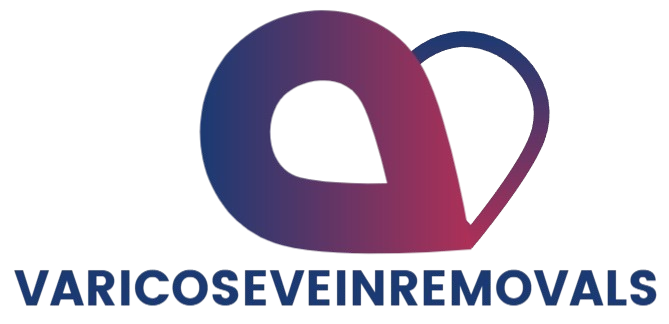In the world of home health care, feedback can be both a gift and a challenge. Some leaders embrace it as an opportunity for growth, while others might shy away from it, fearing criticism. However, feedback, whether positive or negative, holds immense potential to help home health agencies improve patient care, boost employee engagement, and optimize operational efficiency. By listening to what patients, staff, and the broader community have to say, agencies can not only enhance their services but also cultivate a culture of trust and transparency.
The Power of Online Reviews
In today’s digital age, the power of online reviews cannot be overstated. For home health agencies, these reviews are often the first point of contact between a prospective patient and the service provider. Reviews posted on platforms like Google or specialized healthcare review sites can significantly influence the decisions of potential patients. One of the most widely recognized methods for evaluating patient experience is the Home Health Consumer Assessment of Healthcare Providers and Systems (HHCAHPS) survey, which measures various aspects of care, from communication with the team to the timeliness of services provided.
As home health agencies strive to maintain or improve their reputation, it’s essential to regularly monitor these reviews. Agencies should not only celebrate good ratings but also address negative feedback swiftly and professionally. Implementing a service recovery process is crucial for restoring trust and demonstrating a commitment to patient satisfaction. This process typically includes six key steps:
- Apologize for the issue at hand.
- Listen carefully to the patient’s concerns.
- Fix the problem promptly and fairly.
- Offer atonement, such as a refund or complimentary service.
- Follow up to ensure the patient is satisfied with the resolution.
- Keep your promises to prevent recurrence of the issue.
By applying these steps consistently, agencies can mitigate the negative impact of complaints and potentially turn dissatisfied patients into loyal advocates.
Internal Evaluation and Staff Feedback
While online reviews are a valuable source of feedback, internal evaluations are equally important. Many times, frontline staff hear concerns directly from patients or family members long before they are formally documented. This makes it crucial for staff to be trained in handling informal feedback effectively. Agencies should establish clear procedures for capturing and responding to concerns, whether they are minor complaints or major issues.
Incident reports should not only document what happened but also encourage the person reporting the issue to suggest ways to prevent it in the future. This approach fosters a culture of continuous improvement and ensures that every voice within the organization is heard. Furthermore, ensuring that feedback is stored in a centralized system, such as a quality control area in home health software, allows for easier analysis and follow-up.
Dr. Wendy Leebov, a national expert in service recovery, recommends that home health agencies have the following systems in place to handle customer complaints effectively:
- Develop a clear method for receiving and managing complaints.
- Empower staff to resolve issues on their own, where possible.
- Establish a process that begins with service recovery and ends with an improvement or elimination of the issue.
- Define policies and procedures to ensure consistency in handling complaints.
- Educate staff on the principles of service recovery and the importance of feedback.
The Value of Exit Interviews
Another often overlooked source of valuable feedback comes from exit interviews. When staff members leave, understanding the reasons behind their departure can provide insights into areas that need attention, such as training, mentorship, or the organizational culture. Exit interviews are an invaluable tool for identifying potential gaps and improving the overall work environment.
While in-person exit interviews are ideal, online surveys can also be effective, especially if the employee has already secured a new position. Employees are often more honest about their reasons for leaving when they feel they can provide constructive feedback without fear of retaliation. This feedback can be instrumental in refining processes and improving employee retention.
Creating a Feedback-Friendly Environment
To truly benefit from feedback, home health agencies must foster a culture where employees and patients feel safe sharing their thoughts. This means cultivating an environment that encourages open communication and assures individuals that their feedback will not result in penalties or retaliation.
There are several ways to gather feedback, including:
- Anonymous employee satisfaction surveys: These can help gauge staff morale and identify any underlying concerns that may not be voiced openly.
- Open-door sessions with leadership: Providing staff with the opportunity to engage directly with leadership in a non-judgmental setting fosters a sense of inclusion and trust.
- Suggestion boxes or online idea cards: These can be placed in accessible areas or within agency apps, allowing employees and patients to submit feedback at their convenience.
- Regular check-ins with patients: Follow-ups with patients who have previously raised concerns ensure that their issues are being addressed and that improvements are being made.
By regularly collecting feedback, agencies can track whether previous concerns have been addressed and whether progress has been made in areas that needed improvement.
Listening, Learning, and Growing
Ultimately, the key to improving a home health agency lies in the ability to listen—truly listen—to what others are saying. Leaders must possess self-awareness and be open to criticism. It’s not enough to simply hear feedback; leaders must actively engage with it, analyze it, and take action based on what they learn.
Feedback should not be viewed as a threat but as an opportunity to grow, both for the agency and for its staff. When leadership actively listens and responds to feedback in a thoughtful and constructive way, it sets the tone for the entire organization. Employees and patients alike will feel more valued and heard, which in turn leads to higher satisfaction and loyalty.
In conclusion, feedback is an essential tool for improving patient care, enhancing employee engagement, and driving overall agency growth. By adopting a proactive approach to collecting and responding to feedback, home health agencies can ensure that they continue to meet the needs of their patients and staff while maintaining a positive reputation in the community. The future of home health care is shaped by those who are willing to listen, learn, and adapt.



